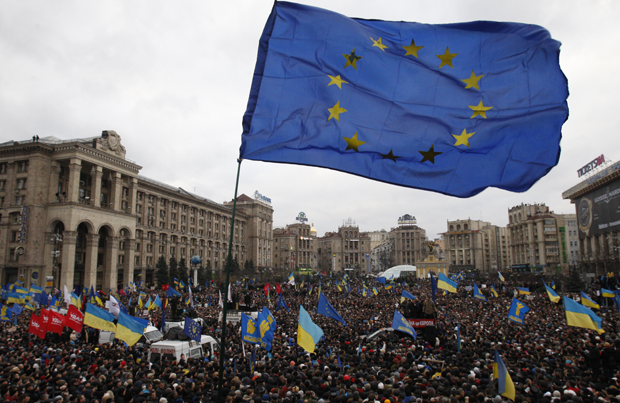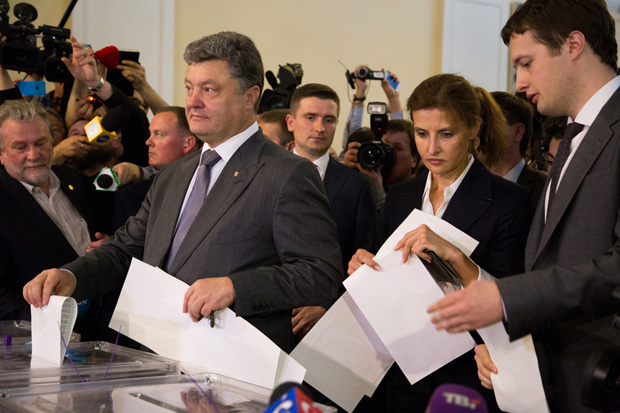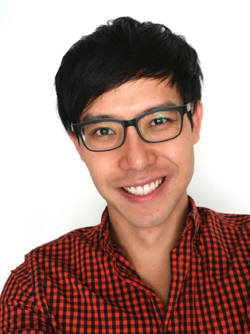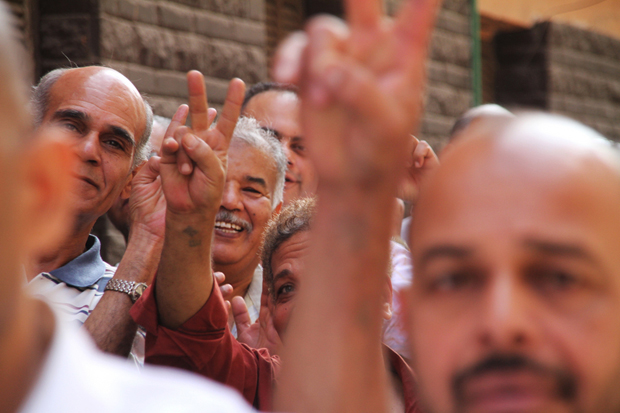27 May 2014 | About Index, European Union, News and features, Politics and Society

(Photo: Anatolii Stepanov / Demotix)
Free speech has always been a concern to the EU, with flaws in the world of press freedom and pluralism in Europe still apparent today. In an attempt to raise awareness to these problems, both on an institutional scale and publicly, DG Connect, tasked with undertaking the EU’s Digital Agenda, launched a call for proposal for funding for a new project to allow NGOs and civil society platforms to research and develop tools to tackle this problem.
The successful candidates- the International Press Institute, Index on Censorship, Osservatorio Balcani e Caucaso and the European University Institute in cooperation with the Central European University– will spend the next year working on the project, under the title European Centre for Press and Media Freedom.
“It is true that we regularly receive concerns about media freedom and pluralism that come from citizens, NGOs and the European Parliament,” Lorena Boix Alonso, Head of Unit for converging media and content at DG Connect told Index.
The Vice President of the European Commission, Neelie Kroes, began implementing action on this topic in 2011 with the creation of a high level group on media freedom and pluralism, but there are still violations in the world of European media freedom that need to be dealt with. These projects will be useful to raise awareness, according to Boix Alonso, to something which many people have little knowledge on.
Index on Censorship
In 2013, an Index on Censorship report showed that, despite all EU member states’ commitment to free expression, the way these common values were put into practice varied from country to country, with violations regularly occurring.
Building on this report, the DG Connect-funded project will enable Index to implement real-time mapping of violations to media freedom on a website that covers 28 EU countries and five candidate countries. Working with regional correspondents, specialist digital tools will be used to capture reports via web and mobile applications, for which workshop training will be provided. Index led events across Europe will discuss the contemporary challenges currently facing media professionals, allowing them to share good practices, while learning how to use the tools.
“Index believes that free expression is the foundation of a free society. Enabling journalists to report on matters without the threat of censorship or violations against them means promoting the right to freedom of expression and information, which is a fundamental and necessary condition for the promotion and protection of all human rights in a democratic society,” explained Melody Patry, Index on Censorship Senior Advocacy Officer.
The DG Connect grant demonstrates the current focus of the EU on the needs of journalists and citizens who face these violations to media freedom and plurality, according to Patry, as well as longer term challenges in the digital age.
Click here to visit the mediafreedom.ushahidi.com website
The Centre for Media Pluralism and Media Freedom
For some, the need to safeguard media freedom is at the forefront of the work they do. The Centre for Media Pluralism and Media Freedom (CMPF) is one such organisation and, in collaboration with the Centre for Media and Communication Studies (CMCS) at the Central European University, will continue to do so with funding from DG Connect for their project Strengthening Journalism in Europe: Tools, Networking, Training.
“The role of journalists is to both serve as guardians of government power and to enable the public to make informed decisions about key social and political issues that affect their daily lives,” the CMPF and CMCS told Index.
“The ability of journalists to freely report on issues without censorship is therefore critical- it’s the cornerstone of the checks and balances that make democracies work.”
The collaborative project will develop legal support, resources and tools for reporters, editors and media outlets to help them defend themselves in cases of legal threat, as well as raising awareness to ongoing violations to free expression and how these “impact the foundation on which democratic systems are based.” NGOs and policy makers will also benefit from this EU-funded scheme.
The International Press Institute
For over 60 years the International Press Institute (IPI) has been defending press freedom around the world, working to improve press legislation, influencing the release of imprisoned journalists and ensuring the media can carry out its work without restrictions.
London may have earned the title over recent years of libel capital of the world but what restrictions are placed on European journalists through defamation laws? This question forms the base of the IPI project, analysing existing laws and practices relating to defamation on both a civil and criminal nature; comparing this to international and European standards; and looking to the extent of which these affect the profession of journalism in all 28 EU countries and five candidate states.
After initial research, workshops will be hosted in four countries where the IPI believes they will have the greatest impact on the ground in countries where press freedom is limited by defamation to teach journalists which defamation laws affect their work, what the legitimate limits to press freedom are and what goes beyond what is internationally accepted.
According to the IPI the EU currently has no strong standards with regards to defamation and the threat to press freedom, a fact the led to their project proposal. “We hope that at one point the work we are doing will lead to a discussion within the EU about the need to develop these standards,” Barbara Trionfi, IPI Press Freedom Manager, explained to Index. “The defence of press freedom is a fight anywhere and it does not stop even in western Europe. It is still a major problem.”
Osservatorio Balcani e Caucaso
“We aim at improving the working conditions of media professionals and citizen journalists in Italy, South-East Europe and Turkey and ultimately at enhancing the quality of democracy,” Francesca Vanoni, Project Manager at Osservatorio Balcani e Caucaso (OBC) told Index.
OBC has been reporting on the socio-political and cultural developments of south-east Europe since 2000 and through their DG Connect funded project will monitor and document media freedom violations in nine countries, including Bulgaria, Croatia, Macedonia, Romania and Serbia.
Offering practical support to threatened journalists, the project will raise public awareness of the European dimension on media freedom and pluralism, stimulating an active role of the EU with regard to media pluralism in both member states and candidate countries. This will be implemented, among other means, through social media campaigns, a crowd-sourcing platform, an international conference for the exchange of best practices and transnational public debates.
The idea behind the project was to help build a European transnational public sphere in order to strengthen the EU itself. The ethics and professionalism of media workers is crucial, according to Vanoni. A democratic environment is built upon the contribution of all parts involved: “The protection of media freedom is fundamental for the European democracy and it cannot be left aside of the main political priorities.
“Being part of a wider political community that tackles shared problems with shared solutions offers stronger protection in case pluralism is threatened,” explained Vanoni.
To make a report, please visit http://mediafreedom.ushahidi.com
This article was published on May 20, 2014 at indexoncensorship.org
27 May 2014 | News and features, Politics and Society, Ukraine

Petro Poroshenko at a polling station (Photo: Oleksandr Ratushniak/Demotix)
Petro Poroshenko has won the Ukrainian presidential election in the first round, as preliminary results and exit polls show he received over 50% of votes. A billionaire, sometimes dubbed “the Chocolate Oligarch” (his main asset is Roshen, the largest confectionery manufacturer in Ukraine) gained his popularity during the Euromaidan protests in November 2013 – February 2014. Many in Ukraine consider Poroshenko to be a controversial figure as the head of the country; he represents a revolutionary, pro-European, but still old, oligarch-driven elite, and a system the Euromaidan protests were aimed against. Yet, the huge support he received shows Ukrainians are tired of the period of uncertainty, and united to give their country a new legitimate leader who can deal with unrest in the south-east regions, where pro-Russian militants continue their attempts to destabilise the situation.
Poroshenko’s first-round victory is a sign of national agreement, but is hardly a final remedy for all the problems Ukraine faces, both externally — like the military threat from Russia, including the occupation of Crimea — and internally. The latter applies not only to economic difficulties, but also to the necessity of extensive reforms that deal with the whole system of interrelations between the state and the society, ensuring real rule of law and putting end to corruption and human rights abuses.
Events in Ukraine over the last six months have made the country one of the most dangerous places for journalists in the world. According to the Institute of Mass Information, there have been 218 cases of physical attacks against reporters in Ukraine in 2014. Viacheslav Veremiy, a reporter for Ukrainian Vesti newspaper, was shot during events on Maidan on 19 February. Vasily Sergiyenko, a journalist and a civic activist, was tortured and then killed in Cherkassy in April. The death toll continued to rise even on the eve of the election, as Andrea Rocchelli, an Italian photo reporter, and his interpreter Andrei Mironov, a Russian human rights activist and a Soviet-era political prisoner, were killed on 24 May near Slovyansk, in the Donetsk region.
“It is still difficult to say if the free speech situation will improve after the election, especially in the east of Ukraine. It will depend on effectiveness of work of the new president and development of relations with Russia,” Tetiana Pechonchyk, the head of the Human Rights Information Centre, told Index on Censorship.
But it is not only the areas of military conflict that are dangerous for journalists. Sergiyenko’s murder and the case of Evgen Polozhiy, the editor of Panirama newspaper from Sumy, who was severely beaten, show reporters’ work is becoming increasingly risky business in Ukraine.
“There were quite a number of journalistic investigations before the Euromaidan, but they led to no official reaction or criminal cases about corruption revealed. Now that the society has changed, corrupt officials and criminals are especially afraid of critical reporting as they can lose their positions or even go to prison; they choose different methods to silence investigative journalists,” Pechonchyk says.
Another important aspect of a media reality around events in Ukraine is the massive information war, launched by Russia. The aim is to show a distorted picture of a modern Ukraine as a state where right-wing extremists and “fascists” seized power, in spite of the fact that the leader of the notorious “Right Sector” organisation got less than 1% of votes during the presidential election. They also aim at perplexing the foreign audience by mixing the terms “Russian-speaking” and “Russian”, for instance to justify invasion of Crimea or actions of pro-Russian militants in Donetsk region.
“That’s what you expect Russia to do — blow the country over with lots of stereotypes, lies and myths. Unfortunately, the Ukrainian government lost this information war. But what is great is that civil society, bloggers, ordinary young people on Facebook confronted Putin’s lies with their activity and creativity, with websites that disprove Russian TV channels’ propaganda or fake news,” says Michael Andersen, a journalist who made a documentary for Al Jazeera about typical stereotypes around Ukraine and Ukrainians.
The latter still have a long way to go to ensure the Maidan changes a lot more than just the name of the president and the faces of the governmental officials. Civil society and the media have a vital role to play on this path to future reforms.
This article was published on May 27, 2014 at indexoncensorship.org
27 May 2014 | News and features, Politics and Society, Singapore

Roy Ngerng has received a letters from lawyers representing Singapore’s prime minister.
A Singaporean blogger has had to take down another four blog posts and a YouTube video after receiving another letter from the lawyer of Prime Minister Lee Hsien Loong.
Roy Ngerng first received a letter from lawyer Davinder Singh on behalf of Prime Minister Lee Hsien Loong last week demanding that he take down and apologise for one blog post that had drawn parallels between Lee’s position as chairman of a sovereign wealth fund and the management of Singapore’s state pension fund and an ongoing trial into the misappropriation of funds by a megachurch.
Lee’s lawyer said that alleging that the he had misappropriated funds “constitutes a very serious libel”. On top of asking Ngerng to apologise, Lee also wanted to claim costs and damages.
Ngerng apologised for the article on Friday morning, admitting that the allegation was “false and completely without foundation”. He asked that Lee waive his demand for damages.
In response, Lee’s lawyers set a Monday evening deadline for Ngerng to respond with an offer of damages. If not, legal proceedings would be taken against him.
On Monday morning, another letter was received, taking issue with four blog posts and a video. Three of the blog posts raised questions over the way the state pension fund is managed, whereas the last blog post and video contained Ngerng’s response to Lee’s demand for damages.
Two of the articles had been published long before the first lawyer’s letter had arrived, one in July 2012 and one in May 2013.
“It is now clear from your client’s latest posts that your client’s apology and undertaking was not and never meant to be genuine,” Davinder Singh wrote to Ngerng’s lawyer M Ravi. He went on to say that Ngerng had “opportunistically” used the episode to “raise his public profile, garner support and sympathy, and renew his attack against our client”. This, Singh asserted, meant that Lee would be entitled to “aggravated damages”.
But Lee would be prepared not to claim these aggravated damages if Ngerng took down the four blog posts and video by Monday evening. Ngerng still has to make an offer of damages for the initial blog post that sparked this whole dispute.
In response, Ngerng’s lawyer M Ravi said that Ngerng would comply with Lee’s demand and take down the posts. He also asked that the deadline for an offer of damages be extended to Wednesday evening.
This article was posted on May 27, 2014 at indexoncensorship.org
27 May 2014 | Egypt, News and features

Egyptians began voting in a new presidential election which ex-army chief Abdel Fattah al-Sisi, who ousted the elected Islamist leader, is expected to easily win amid calls for stability and economic recovery. (Photo: Mohamed Krit / Demotix)
“El Sisi will not reside in the Presidential Palace but will instead be a roving President.”
Surprisingly — or perhaps not so surprising — the headline in the independent Al Masry El Youm newspaper was published Sunday, a day before Egyptians headed to polling stations to vote in their second presidential elections since the ouster of Hosni Mubarak three years ago. Egyptians had not yet cast their ballots but the country’s media had already declared former army chief Field Marshall Abdel Fattah El Sisi the winner in the presidential race. In an election that analysts have described as “lacking in suspense” and the outcome of which was “a foregone conclusion,” El Sisi, who is running against rival leftist candidate Hamdeen Sabahy, is widely expected to emerge as the victor, cementing the military’s grip on power.
In the weeks leading up to the vote, Egyptian media had reverted to Mubarak-era policies, persistently lionising El Sisi (and the military) while demonising his opponents. Government critics and dissenters of all stripes have meanwhile, been branded “terrorists” and “traitors,” in a trend reminiscent of the early days of the January 2011 mass uprising when the pro-democracy activists in Cairo’s Tahrir Square were described by state-controlled media outlets as “thugs” and “foreign agents.” Since the toppling of Islamist President Mohamed Morsi on July 3 ,2013 by military backed protests, the airwaves have been saturated with a constant stream of patriotic songs set to images of cheering crowds and of El Sisi in military uniform.
In the wake of the July 3 military takeover of the country however, the propaganda narrative has not been limited to the state-run Maspero media network, for decades the mouthpiece of various successive regimes. In the current repressive climate, many of the privately-owned media outlets are now also in lockstep with the country’s military-backed authorities. After Islamist channels were forcibly silenced last summer, there has just been one narrative in Egyptian media: the official narrative. Observers lament the reversal of one of the most important gains of the January 2011 revolution: a freer press. Some analysts explain the rallying of the media around the military’s nationalistic flag as a “natural reaction” to the looming “threat of terrorism.”
“Perhaps the media is simply doing what the media anywhere has a tendency to do in times of war or crisis, which is to let nationalism trump professionalism,” explained the Guardian’s Rachel Shabi in an article published several weeks after the ouster of the Muslim Brotherhood President. She also suggested that the private media outlets may be “getting their own back at the Brotherhood — which , after all, harassed opposition media while in power. ”
Other analysts believe journalists are practicing self censorship for fear of being accused of treachery. “They believe that this is a fight that transcends politics, and is a battle for Egypt’s survival,” British-Egyptian journalist Sarah Carr told the Guardian. “Anyone attempting to counter this official narrative is accused of being a traitor.”
Meanwhile, the low turnout on Monday, the first day of voting in the presidential election, prompted frantic appeals by TV talk show hosts and commentators to voters to cast their ballots.
“We are in a state of war. The low turnout gives the West and traitors inside the country a signal to pursue their conspiracies against Egypt. The country will face serious problems and may even transcend into a fragmented state like Syria or Libya”, journalist Mostafa Bakri warned Monday evening in an interview broadcast on the privately-owned El Thawra Channel.
“Those who boycott the elections are giving the kiss of life to terrorism.They are traitors,” he added, exhorting all “patriots” to participate in the election.
On his show El Qahira El Youm broadcast on the Saudi-owned Orbit satellite network, popular talk show host Amr Adeeb urged business owners to inspect the fingers of their employees for traces of ink to make sure they voted. “Tomorrow is not a public holiday for leisure,” he told viewers shortly after the Prime Minister declared Tuesday a holiday ” in compliance with the will of the people.”
On the privately-owned CBC channel, presenter Lamis El Hadidi used another tactic to persuade citizens to vote. Directing her message to Egypt’s Coptic Christians and playing on their fear of Islamists, she reminded the country’s minority Christian community of the torching of churches under Islamist rule. Her comments provoked an outcry on social media networks from young activists who perceived her remarks as “incitement to hatred ” and “serving to fuel sedition” in an already deeply polarised country.
“She is clearly suffering from amnesia. El Hadidi ‘forgot’ to mention the Maspiro massacre of Coptic Christians ,” retorted activist Nahed el Tantawy in a Facebook post, in reference to the violent dispersal by the military of a Christian protest rally outside the State TV building in October 2011.
The independent Al Masry El Yom meanwhile reminded citizens of the warning issued by the country’s Supreme Electoral Commission that those boycotting the vote would be fined 500 LE for abstaining.
Despite the calls for a big turnout by the country’s largely pro-military media, there was no sign of an early morning rush to polling stations as booths opened on Tuesday, the final day of the two-day vote. A judge at a polling station in Cairo’s affluent residential neighbourhood of Maadi blamed the markedly low turnout on the smeltering summer heat.
“People prefer to stay indoors in this hot weather,” he told Index.
Analysts however, believe that “apathy” and “fear of violence” are keeping voters away from the ballot box. Many of the country’s secular youths who helped mobilise the public for the 2011 mass protests demanding bread, freedom and social justice, are frustrated by what they see as “a return of the oppressive police state” they helped dismantle three years ago. Since last summer’s coup, a brutal security clampdown on Muslim Brotherhood supporters and liberal activists alike, has prompted a noticeable youth disengagement from politics. More than 1,400 protesters have since been killed by security forces while thousands of opposition figures languish in prisons on what rights activists perceive as “trumped up” charges. An April court ruling outlawing the April 6 movement — a pro-democracy group that was a driving force behind the January 2011 uprising — on charges of “espionage” and “damaging the country’s image abroad” is seen as a manifestation of the current climate of repression as are the rulings sentencing hundreds of Muslim Brotherhood supporters to death for their role in protests.
El Sisi has already made it clear that the crackdown on free expression will continue, should he become president. In a recent televised interview broadcast as part of his election campaign, he said “freedom of speech undermines national security,” adding that the role of the press was to “forge unity.”
It is little wonder that many sceptical , pro-reform activists perceive the return of the military regime as being part of a counter-revolutionary plan. “The interim military-backed authorities and their supporters in the media have spared no effort in their attempts to distort truths and disfigure the revolution,” they lament. ” Sadly, their efforts have so far been successful.”
This article was published on May 27, 2014 at indexoncensorship.org




